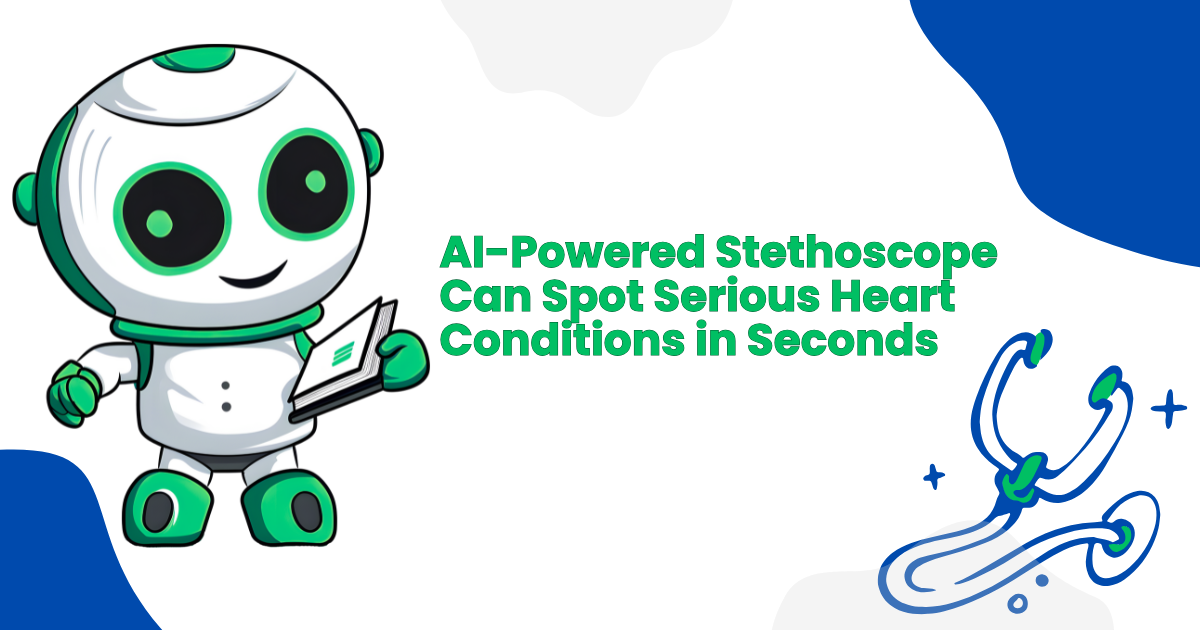AI Stethoscope Could Transform Heart Disease Diagnosis
Stethoscopes powered by artificial intelligence (AI) may be able to detect life-threatening heart conditions within seconds, according to new research.
The original stethoscope, first invented in 1816, revolutionized medicine by allowing doctors to listen to internal body sounds. Now, a modern AI-driven version is taking that legacy a step further.
In a recent study, a British research team found that the device can quickly identify three major conditions: heart failure, heart valve disease, and abnormal heart rhythms—almost instantly.
Experts say this tool could be a “real game-changer,” enabling faster diagnosis and treatment for patients. Following successful trials across 205 GP surgeries in west and northwest London, plans are already underway to roll out the technology across the UK.
#1AI Stethoscopes Could Revolutionize Heart Disease Detection, Study Finds
A new generation of AI-powered stethoscopes could transform how doctors detect heart conditions, according to groundbreaking research from Imperial College London and Imperial College Healthcare NHS Trust.
Unlike the traditional stethoscope—first invented in 1816—this modern device replaces the chest piece with a playing-card-sized sensor. Using advanced microphones, it picks up subtle variations in heartbeat and blood flow that the human ear cannot detect. The device also records an electrocardiogram (ECG) and uploads the data to the cloud, where artificial intelligence trained on tens of thousands of patient records analyzes it in seconds.
In a study involving more than 12,000 patients across 96 GP surgeries, researchers found that:
Heart failure was detected 2.33 times more often within 12 months compared to standard care.
Abnormal heart rhythms—a hidden risk factor for strokes—were 3.5 times more likely to be identified.
Heart valve disease was detected at a rate 1.9 times higher.
The devices, manufactured by US-based Eko Health, were compared against practices without the AI technology. Researchers say the tool could be a “game-changer” in diagnosing heart disease earlier, ensuring patients get treatment before conditions reach critical stages.
Dr. Sonya Babu-Narayan, Clinical Director at the British Heart Foundation (BHF) and consultant cardiologist, described the innovation as “an elegant example of how the humble stethoscope, invented more than 200 years ago, can be upgraded for the 21st century.”
She emphasized that early diagnosis is crucial: “Too often, these conditions are only spotted at an advanced stage when patients arrive at the hospital in emergency situations. With earlier detection, people can access the right treatment to live longer and healthier lives.”
The findings were presented at the European Society of Cardiology Congress in Madrid, the world’s largest heart conference. Plans are now underway to expand the rollout of AI stethoscopes to GP practices in south London, Sussex, and Wales.
Reactions
Already reacted for this post.







